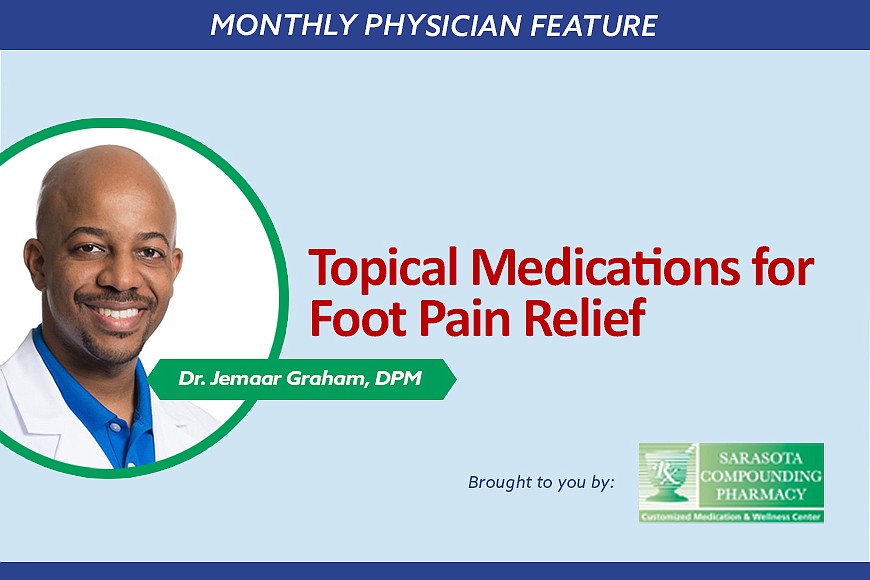-
-
Loading

Loading

Here in Florida, tile and hardwood floors are practical for their ease of cleaning and cooler surfaces but they can also cause painful foot conditions, especially among older people. We lose fat on the soles of our feet as we age and walking on harder surfaces increases the likelihood of nerve problems in the feet.
Among these are Morton’s neuroma, which causes sharp, burning sensations in the ball of the foot; peripheral neuropathy, weakness and pain caused by nerve damage that affects 3 to 4 percent of adults over 55; and tarsal tunnel syndrome, when a compressed nerve around the ankle creates pain or numbness in the sole or base of the foot.
Dr. Jemaar Graham, a podiatrist at 360 Orthopedics, says he often prescribes compounded topical medications, usually a cream or an ointment, to treat his patients who have these conditions. He cites two main reasons for preferring topical medications.
Many of his older patients are taking many other prescriptions daily, so avoiding potential counterindications can be challenging. This is not a concern with topical medications. They’re not ingested so they don’t have the drug interaction concerns of oral medications. Additionally, there aren’t side effects that often come along with oral medications.
Dr. Graham says another advantage of compounded topical medications is the ability to mix several medications into one treatment. Neuropathic topical treatment can combine an anti-inflammatory, an anesthetic and gabapentin, a nerve pain medication. In order to have all these benefits in oral medication, patients would have to swallow three separate pills every day. Dr. Graham believes there would likely be an issue of lack of compliance on the patient’s part if there were that many different pills to take. When all the medications are together in a topical cream, the patient is more likely to be consistent with the prescribed treatment plan.
He has also observed that other commonly prescribed treatments are not as effective for many of his patients as compounded topical medications.
“I’ve had patients who’ve had chronic nerve pain that didn’t get better with injections or orthotics,” says Dr. Graham, “but they were able to try topical medication that calmed symptoms down.”
With the help of topical medications, his patients are able to resume their usual activities without feeling restricted.